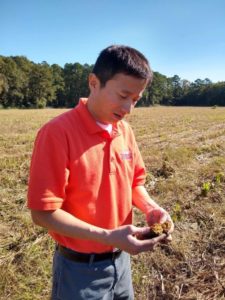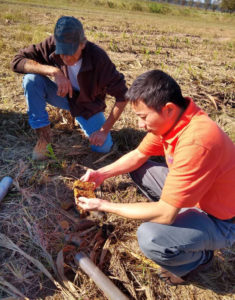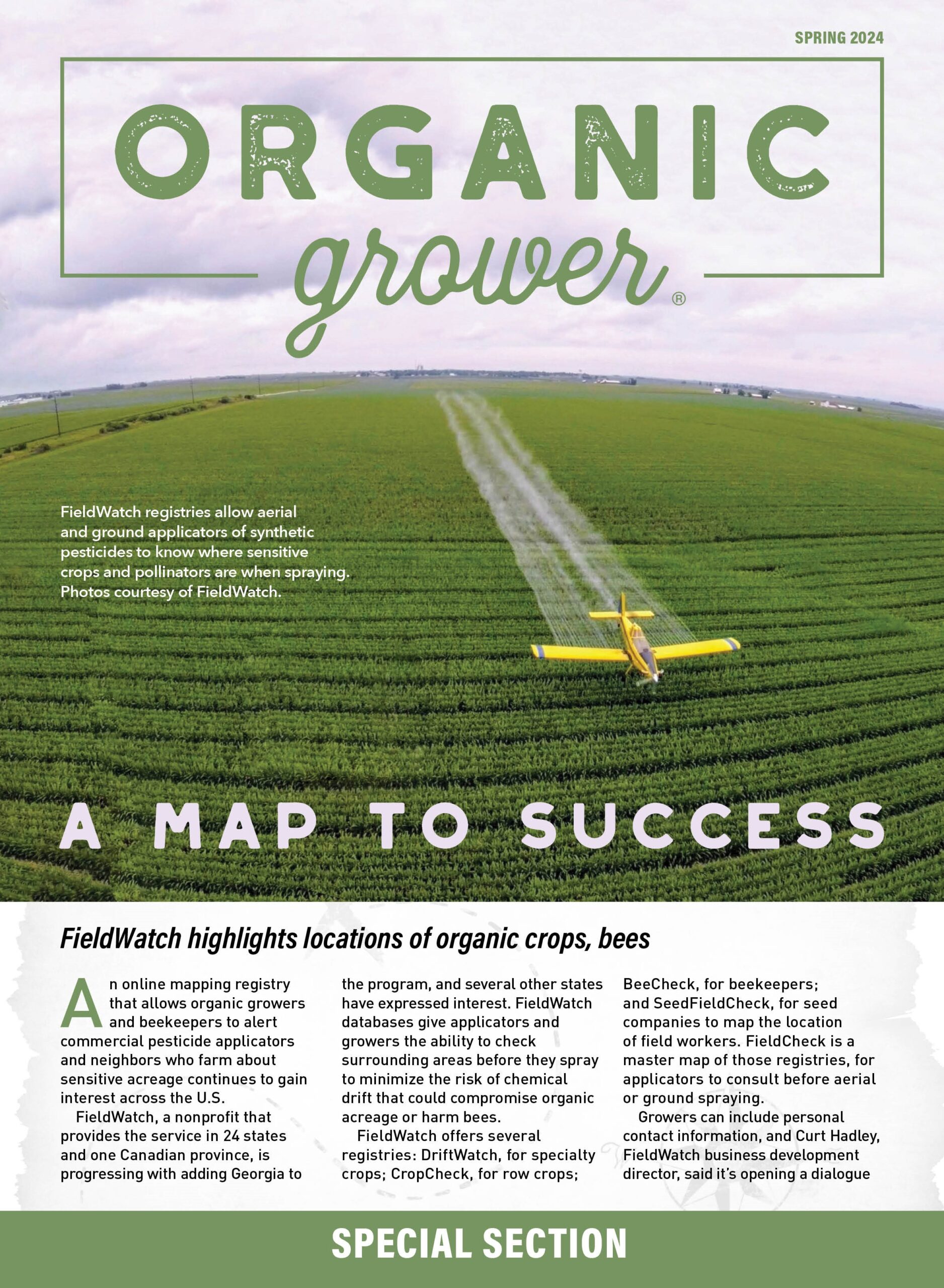The organic industry is the fastest-growing agricultural segment in the United States, but low soil organic carbon, meager soil fertility and poor soil structure are keeping South Carolina farmers from reaping the benefits of this market.

To help South Carolina farmers overcome these challenges and grow organic vegetables, Rongzhong Ye, an assistant professor at Clemson’s Pee Dee Research and Education Center (REC), has received a $500,000 grant from the United States Department Agriculture National Institute of Food and Agriculture (USDA-NIFA) for a 3-year study on improving soils to support organic vegetable production.
“Increasing organic inputs, such as manure and compost and cover crops, as well as using conservation tillage, are considered some of the best management strategies to address such soil health issues,” Ye said.
Using diverse organic inputs in combination with various management practices may make desired economic and environmental outcomes less predictable.
“We want to determine if this diversity in organic inputs can be managed to improve soil health and the productivity of organic vegetables in southeastern soils,” Ye said. “We also want to determine if tillage affects these outcomes.”
During this study, Ye and his team will strive to better understand how organic inputs and tillage affect soil biogeochemical processes essential for supporting soil health. The researchers will study soil microbial communities, carbon dynamics, nutrient processes and changes of soil health, as well as yields and nutritional quality of organic vegetables.
Biogeochemical cycles are natural cycles in which elements or compounds move through an ecosystem. These cycles are essential for life and include the water cycle, carbon cycle and nitrogen cycle. Ye and his team will be studying carbon, nitrogen and phosphorous cycling.
“The goal is to advance our knowledge of soil biogeochemical processes that are important to the productivity, profitability and sustainability of organic vegetables,” Ye said. “We want to provide research-based information to regional producers to improve ecosystem services and environmental stewardship of their farms.”
In addition to Clemson researchers, this project also involves researchers from the Rodale Institute Southeast Organic Center. This collaboration addresses priorities of the USDA-NIFA’s Organic Transitions Program which include understanding the effects of using organic practices such as organic manure, mulch, and/or compost additions, as well as using cover crops and reduced or conservation tillage on soil health and fertility. These priorities also include developing technologies to optimize ecosystem services and climate variability adaptation of organic crops.

Fieldwork will be conducted simultaneously in certified organic fields at the Pee Dee REC and at the Rodale Institute Southeast Organic Center, Chattahoochee Hills, Georgia, to account for variations in climate and soil conditions. The rotation will be a tomato-cucumber-winter cover crop. Tomatoes will be planted in April, followed by cucumbers. These crops will be managed according to the 2020 Southeastern U.S. Vegetable Crop Handbook. Cover crops and manure applications will be used along with conservation (strip-till), or conventional tillage for organic input diversity. Cover crops will be cereal rye and hairy vetch, as well as combinations of these crops. The cover crops will be terminated with roller-crimpers.
Organic farming is gaining popularity. The latest figures from the USDA National Agricultural Statistics Service shows the U.S. had 16,585 certified organic farms in 2019, with 39 certified organic farms located in South Carolina.
This study is funded by United States Department of Agriculture National Institute of Food and Agriculture (USDA-NIFA) Grant 2020-51106-32363. Any opinions, findings, and conclusions or recommendations expressed in this material are those of the authors and do not necessarily reflect the views of the USDA-NIFA.






